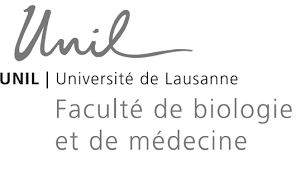
Symposium to honor the memory of
Jean-Pierre Guignard
June 21, 2024, Lausanne Switzerland
During his career Jean-Pierre Guignard has been distinguished by the University of Lausanne (Prix de Cérenville 1970; Laureate of the University 1970), by the Swiss Pediatric Society (Prix Guido Fanconi 1983), by the ESPN (2005) and by the International Society of Pediatric Nephrology (IPNA) who awarded him in 2017 the prestigious Ira Greifer Prize in recognition of his major contribution to the field of renal developmental physiology and his incredible ability to bring people together and make them grow.
Jean-Pierre Guignard was born in a small village at the foot of the Jura. He received a classical Latin-Greek education in Lausanne and achieved there his medical degree. Towards the end of his studies, he passionately followed the courses of Professor Georges Peters recently appointed head of pharmacology, with whom he completed his thesis. He continued his training in London (London Hospital Medical College and St. Thomas Hospital), Vancouver (University of British Columbia), Montreal (Royal Victoria Hospital, McGill University) and Mexico City (Hospital Pediatrico del Seguro Social). Returning to Switzerland in 1972, he set up a very dynamic pediatric nephrology unit and clinical and experimental research center. He opened a pediatric hemodialysis unit in 1974, a kidney transplant unit in 1975 and a chronic peritoneal dialysis unit in 1978. With the support of the SNF, he created a laboratory for basic and clinical research, and developed a model on the baby rabbit to study and better understand the renal physiology of premature infants. His clinical and research activities have led him to publish more than 550 articles and book chapters from 1966 to 2016. He founded the European Society for Developmental Pharmacology in 1988 and the International Symposium on Perinatal Nephrology in 1998.
Driven since his university years by a social ideal, he was involved through the Centrale Sanitaire Suisse in Vietnam during and after the war, in developing countries (Algeria, Vietnam, Mexico, and particularly Cuba) by providing direct medical aid, medical equipment and medicines and participating in numerous teaching missions in these countries. He also organised several IPOKRATES seminars for young doctors which contributed to the influence of the IPOKRATES Teaching Foundation in Germany, France, Italy, Belgium, Vietnam,Mexico, China, India and Slovakia.
Two State of the Art Lectures

Functional imaging of the kidney and drug toxicity
A.M. Hall, University of Zürich
Andrew Hall is associate professor ad personam at the Institute of Anatomy, holding a double affiliation with the Medical and Science Faculties. The activities of his research group are focused on the development and application of advanced imaging approaches, including intravital microscopy, to elucidate dynamic cellular mechanisms of kidney diseases, with the long-term goal of developing new diagnostic and therapeutic strategies. He receives funding from the Swiss National Science Foundation.
Since 2022 Andrew Hall is the founding director of the Zurich Kidney Center, a Competence Center of the University of Zurich, which brings together scientists and clinicians across different institutions, working together to find new ways to diagnose and treat kidney diseases.
Integration of high-throughput imaging and multiparametric metabolic profiling reveals a mitochondrial mechanism of Tenofovir toxicity
Pearson A, Haenni D, Bouitbir J, Hunt M, Payne BAI, Sachdeva A, Hung RKY, Post FR, Connolly J, Nlandu-Khodo S, Jankovic N, Bugarski M, Hall AM. Function (Oxf.) (2023)
https://pubmed.ncbi.nlm.nih.gov/36654930/
Spatiotemporal organisation of protein processing in the kidney
Polesel M, Kaminska M, Haenni D, Bugarski M, Schuh C, Jankovic N, Kaech A, Mateos JM, Berquez M, Hall AM. Nat Commun. (2022)
https://pubmed.ncbi.nlm.nih.gov/36175561/
Intravital kidney microscopy: Entering a new era
Martins JR, Haenni D, Bugarski M, Polesel M, Schuh C, Hall AM Kidney Int. (2021)
https://pubmed.ncbi.nlm.nih.gov/34015315/

Evolution, kidney development, and chronic kidney disease
R.L. Chevalier, University Virginia
Dr. Robert Chevalier is a Professor of Pediatrics at University of Virginia School of Medicine. A large part of his scientific career was devoted to the study of congenital urinary tract obstruction which accounts for most cases of renal insufficiency in the infant. Using cell culture techniques and experimental animal models of unilateral ureteral obstruction (UUO) , he demonstrated that compared to the adult, the neonatal kidney is more susceptible to the injurious effects of ureteral obstruction. he developed models of chronic partial UUO in the neonatal rat and mouse , and found that obstruction leads to cellular apoptosis and necrosis at the glomerulotubular junction and formation of atubular glomeruli.
Recently his interests have shifted towards the evolutionary aspects of kidney development.
Charlton, J. R., & Chevalier, R. L. (2018). Developmental Origins of CKD: Big Problems From Small Packages. AMERICAN JOURNAL OF KIDNEY DISEASES, 71(1), 3-5. doi:10.1053/j.ajkd.2017.08.022
Our Sponsors










